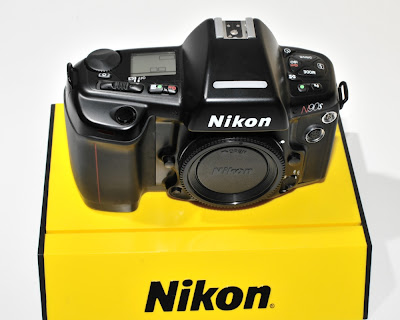Introduction
This article is based on an article I had written some years ago (in 2012 if I remember well). That article was published on AmateurNikon and was online for some time. I then pulled it - indeed it is the only AmateurNikon article to have undergone such a... treatment. Why I did that? Because I realized it would send the wrong message, and I wanted to tweak the content as well as the meaning of the article before putting it online again. Well, weeks turned into months and months turned into years before I found time to do it. But today is the day!Today, we'll try to tackle one of those big binary issues in photography. It's a bit like those timeless "DX or FX", "Nikon or Canon", "zoom or prime" kind of things, though there is a difference. You see, most people who agonize over getting a Nikon or Canon, a cropped-sensor camera or a full-frame one, do so because they want to invest into something. It will be something that they will be dealing with for years to come, at least in theory. The same can be argued for the "zoom or prime" lineup, though this is less polarizing, because most lineups include lenses from both categories and it's easier to swap.
 |
| It was great in the 90s. Now it's time to let it rest |
So, where does film stand in that? To answer the question, we need to see it from two different approaches.
Film as Curiosity vs Film as Workflow
If the title question were, Should I try film, my answer is much easier. "Go for it!"
Using film out of curiosity or desire to experiment is not only a good idea but it will probably help with your... mainstream photography. You will learn to be patient, you will learn to take your time, and you will learn to think very carefully before you press the shutter button.
But what if you're asking "should I go back to film?" or "should I start shooting film because it's better?" (whatever "better" means in that context)...
In that case, which I'll refer to as "Film as Workflow", the answer is a deafening "NO". The reason is implied in the word workflow. As I stated here:
For my next wedding assignment I'll again use my D700, that lets me shoot nonstop (no need to change film or worry about film temperature) for hours, in rapidly changing lighting conditions. From indoor lights to outdoor, from flash to ambient, it doesn't matter. Everything can be fixed post-processing the .NEF file. 700 photos at a wedding, all transferred to the computer in about 10 minutes. Just think how much time it'd take to develop and scan 20 rolls of film. There's a nightmare I don't want to spend two seconds to ponder on.About the only application workflow would not be an issue (and where film would have an advantage technically speaking) would be shooting landscapes with large-format cameras. Which brings us to two other issues.
Weight and Price
A D3300 with a good lens (say, the Nikkor AFS 50mm f/1.8) weighs about 2 lbs (900g) and costs less than $600. It also fits easily in almost every backpack.You don't wanna know how much it costs to put together a decent large-format equipment. You definitely don't wanna know how much it weighs and how big it is (hey, it's called "large format" for a reason!). Suffice to say, if you google a bit you'll find a picture of Ansel Adams on the roof of his car, next to a giant tripod on top of which his camera was secured. Yikes!
But even if we don't have to talk about large format, even if we stick to the most basic setup, there is a price penalty that, negligible though may it be for experimentation and fun, it becomes important if you plan to actually forgo your digital for film. Let's talk numbers.
- 25$ for the most basic SLR camera, batteries, and a roll of plain vanilla ISO 100 generic film. (I assume you already have a full-frame lens that is compatible with the film camera)
- About 10$ for having the film developed and getting a set of prints.
- Total: 35$. For 36 photos, half of which might be blurry or under/overexposed.

No comments:
Post a Comment